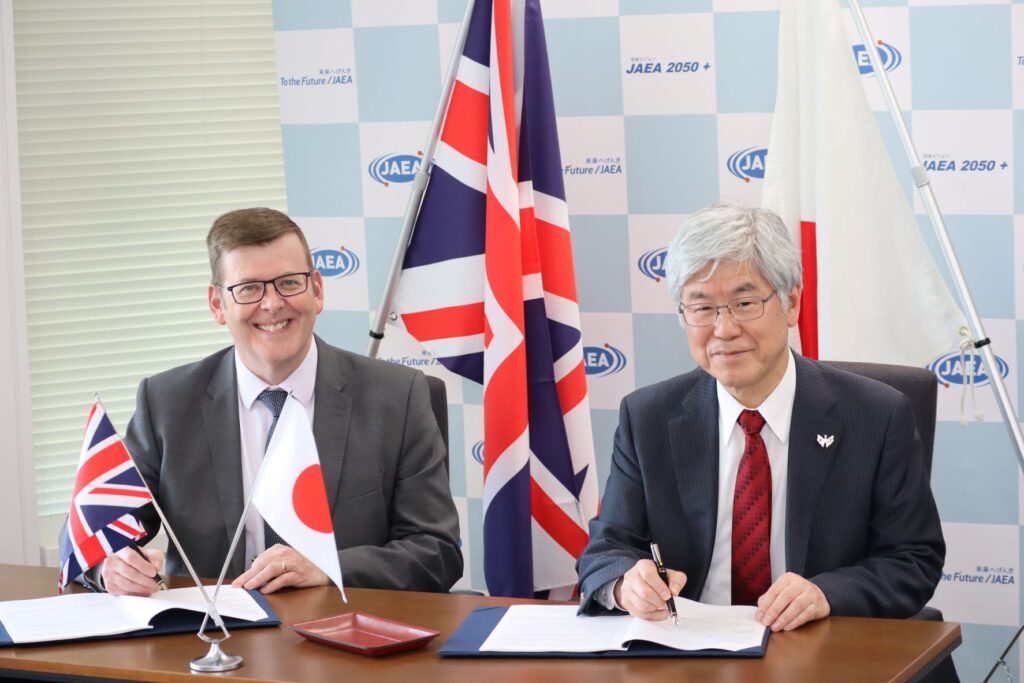 The Japan Atomic Energy Agency (JAEA) has awarded UK-based Cavendish Nuclear, a subsidiary of Babcock International Group, a contract to support of the decommissioning of the Monju Prototype Fast Reactor (PFR) in Fukui Prefecture.
The Japan Atomic Energy Agency (JAEA) has awarded UK-based Cavendish Nuclear, a subsidiary of Babcock International Group, a contract to support of the decommissioning of the Monju Prototype Fast Reactor (PFR) in Fukui Prefecture.
Cavendish says: “Supported by International Nuclear Services Japan – a subsidiary of the UK's Nuclear Decommissioning Authority – and working with delivery partner Jacobs, the contract will see the design, construction, operation and ultimate dismantling of a new facility in the UK, for the treatment of sodium from Monju that will be recycled for industrial use. In August 2019, the company was awarded a contract by JAEA to support decommissioning of Monju by providing technical support for creating a lifetime plan for the decommissioning of the reactor and a feasibility study into the treatment of sodium coolant from the Monju site.
The decommissioning of Monju will take 30 years and cost more than JPY375 billion ($2.5bn), according to government estimates. This includes JPY225 billion for maintenance, JPY135 billion for dismantling the plant and JPY15 billion for defuelling and preparations for decommissioning.
The 280 MWe Monju was initially considered a "dream reactor" because of its ability to produce more nuclear fuel than it consumes, but a series of accidents eventually led to cancellation of the project. Monju was shut down in 1995, four months after it began operation when 700 kg of liquid sodium leaked from the secondary cooling loop. Although there were no injuries and no radioactivity escaped plant buildings. JAEA tried to conceal the scale of the damage.
Monju restarted in May 2010 but refuelling equipment fell into the reactor vessel during a refuelling outage later that year, and it has not operated since then. Although the equipment was retrieved and replaced, The Nuclear Regulation Authority (NRA) did not allow the reactor to restart. In November 2015, following concerns over lax equipment inspections, NRA determined JAEA was not competent to operate the reactor, and in December 2016, the government decided to decommission it. The JPY1000bn ($9bn) Monju had operated for only 250 days since its start-up in 1994.
Cavendish said the contract highlights its expertise in complex decommissioning projects in the UK and internationally and builds on its long relationship with the wider Japanese nuclear industry. It draws on experience of the UK’s Dounreay prototype fast reactor (PFR) decommissioning programme, which is similar in design to Monju.
David Lockwood, Babcock Group CEO said the contract “will provide opportunities for our skilled nuclear engineers and many more across the wider UK supply chain for this 10-year programme”.
JAEA President Masanori Koguchi said: “It is encouraging that JAEA can now engage in this important project with Cavendish Nuclear and Jacobs which have a high level of technology based on their experience in the UK.”
Cavendish Nuclear has over 60 years’ experience of decommissioning and waste management and a heritage of being a UK nuclear site licensee. This has included a total of 27 different reactors ranging from small scale piles at Harwell to highly complex power generating reactors such as the Steam Generating Heavy Water Reactor (SGHWR) at Winfrith, the PFR at Dounreay and the Windscale Advanced Gas Cooled Reactor (WAGR) at Sellafield.
The decommissioning of Monju is expected take 30 years and cost more than JPY375bn ($2.5bn), according to government estimates. This includes JPY225bn for maintenance, JPY135bn for dismantling the plant and JPY15bn for defuelling and preparations for decommissioning.
JAEA submitted a detailed four-stage plan to decommission Monju, in line with the government's basic policy, to the NRA in 2017. In the initial stage, JAEA would transfer all fuel to an on-site storage pool by fiscal 2022. In October 2022, JAEA announced that all the fuel assemblies at Monju had been transferred to a water-filled storage facility. The second and third stages would see liquid sodium coolant extracted from Monju and related equipment dismantled. Finally, the reactor building will be demolished and removed by fiscal 2047. NRA approved that plan in March 2018.
Image: Cavendish Nuclear Managing Director Mick Gornall (L); and Japan Atomic Energy Agency President Koguchi Masanori (R) pictured at the contract signing ceremony (courtesy of Cavendish Nuclear)






